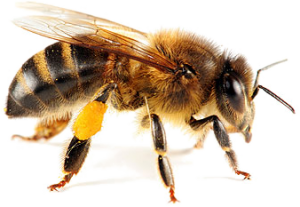Background:
Honey bees are responsible for pollinating almost one third of the foods we eat, including avocados, almonds, and apples. Even if you don’t realize it, everyone relies on honey bees one way or another. Unfortunately, bees and many other pollinators are on the edge of extinction due to the disease “colony collapse disorder” (CCD). Which can leave a hive greatly weakened and prone to abandonment during the winter season. There is no single cause to colony collapse disorder, but instead many possible factors including Varroa/Acarapis mite infestation, loss of habitat, and neonicotinoids exposure(pesticide). Colony collapse disorder has already claimed nearly 10 million hives since its discovery in 2006. As well as destroying almost 44% of American colonies from 2015-2016. It is obvious that bees are too essential to our survival for us to not do anything about CCD; yet each year, up until 2016, we’ve seen more bees die than the last…
Recent News:
It wasn’t until recently have we finally been getting some good news regarding bees. 2017 was the first year since the discovery of CCD that we have seen a lower rate of abandonment than the years before. Seeing only 226,000 colonies destroyed compared to the 330,000 in 2016. Scientists relate this to new laws banning the use of neonicotinoids after identifying it as the pesticide responsible for bee death in early 2017. Individual states are also stepping up to introduce new laws designed to protect bees like California’s “Pollinator Protection Act”. Which requires plants treated with neonicotinoids to be labeled and also protects bee habitats in suburban areas. The bees still have a far way to go before they’re in the clear but at least were taking a step in the right direction.
How to help:
Plant bee-friendly flowers in your garden
Remove/ limit pesticide use in your yard
Reach out to your local congress representative to express your concern
Protect essential bee habitat
Support local farms and apiaries
– Ty Carlson